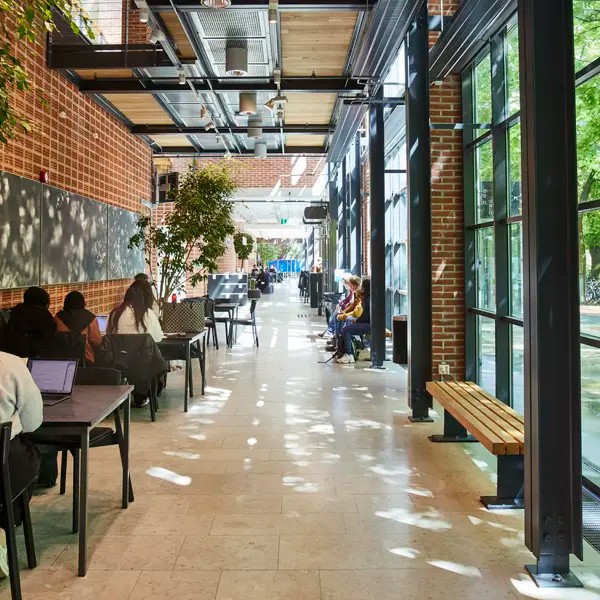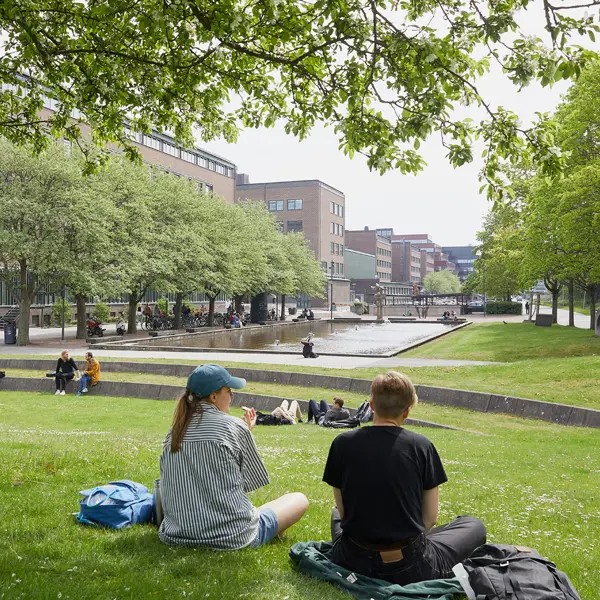Here, you can read about the approaches that guide Chalmers. Our aim is for you who study, work and collaborate with Chalmers to experience these approaches, contributing to them in your work and study settings and in all their interactions with the university.
Our fundamental values
Chalmers’ fundamental values: Openness, Participation, Respect, Diversity and Quality. They are to imprint all operations at Chalmers:
Openness
An open and generous atmosphere creates a feeling of security and well-being that provides a basis for creativity and development. Such an atmosphere requires an interest in new thinking, ideas and people. It also requires an openness that manifests in honesty about what we mean and believe to avoid uncertainty in the mind of the recipient. We encourage one another and have an open dialogue with feedback.
Participation
To be able to develop our creativity as individuals and achieve our full potential we need to feel involved in a larger context. We achieve this by giving one another the opportunity to be involved in groups, conversations and other activities. We do not allow prejudices, preconceived notions or our own convenience to govern our actions. When we see someone who seems to be excluded, we invite them in to be involved.
Respect
We show others respect by listening to their arguments and allowing for others’ opinions. We never tolerate anyone being harassed or maligned – whether it be in a song, a joke in the lecture theatre, a comment in the rest area or in any other context. We support people who have been victimised by taking action and calling to account those doing the harassing. We take joint responsibility for creating a considerate work and study environment.
Diversity
There are people of all ages and from all over the world at Chalmers – with different personal characteristics, convictions and values. This diversity is one of Chalmers’ strengths. Meetings between people with different backgrounds, experience and points of view foster creativity and problem solving. Therefore, it is essential to strengthen and encourage the diversity that exists at Chalmers. Making everyone feel welcome and appreciated also enables us to grow.
Quality
We strive to achieve world-class quality. This applies to our research, education and utilisation, and how we disseminate the results of these to the wider community. Regardless of whether we are dealing with collaboration, contact with the surrounding world or how we communicate on the web and on social media, it is important that we feel a responsibility as Chalmers representatives. This does not limit academic freedom or the right that an individual researcher or student obviously must express their views on matters of fact.
Code of Conduct
To clarify how all individuals at Chalmers are expected to live up to our values and have a responsibility regarding the community, Chalmers has a Code of Conduct, which is to be signed upon employment for all new staff.
Gender equality and equality
Chalmers’ area of activity has traditionally been dominated by men. We believe that this limits the possibilities for successful operations, and we therefore actively pursue gender equality on several levels:
Gender mainstreaming
Gender mainstreaming is a strategy for incorporating a gender perspective into all planning, implementation and follow-up so that gender equality becomes part of normal work. A gender perspective must be present at all levels, in all parts of the process, and must be pursued by those who are normally involved in the decision-making process.
Like all Swedish universities and higher education institutions, Chalmers has been tasked by the government with gender mainstreaming its activities. This work involves reviewing career paths, gender-based study choices and student completion.
Genie
The Gender Initiative for Excellence (Genie) aims to even out the gender balance in the faculty and remove structural and cultural obstacles for women to be successful in their careers at Chalmers. It is funded by the Chalmers Foundation and has a budget of SEK 300 million over ten years to 2028. It has two overall objectives:
- to raise the proportion of women in the faculty up to professor level to 40 percent
- to eliminate structural and cultural barriers to women’s careers.
A sustainable operational och working environment
Chalmers has a long tradition of integrating sustainability work into everything it does – research, education, utilisation and the internal environment. Thus, in collaboration with other actors, we contribute to a sustainable society and meet people’s needs for ecological, social and economic sustainability. The aim of Chalmers’ research, education and utilisation is to contribute in various ways to the UN’s global sustainable development goals. We also collaborate with other universities and colleges on climate change, based on our national and international commitments.
The working environment for Chalmers’ activities must be such that no employees or students are at risk of suffering ill health or injury owing to their working/study environment. The working environment should contribute to both professional and individual well-being and development. All decisions taken and all activities conducted at Chalmers must comply with the relevant working environment legislation.
The working environment should feature openness, participation and diversity and all individuals must be treated equally and with respect. Chalmers does not accept any form of harassment, discriminatory treatment or, in particular, sexual harassment. The organisation must have clear and visible leadership that shows respect and care for every employee.
We work systematically and preventively on the basis of working environment legislation and with the aim of constantly improving the working and study environment.



